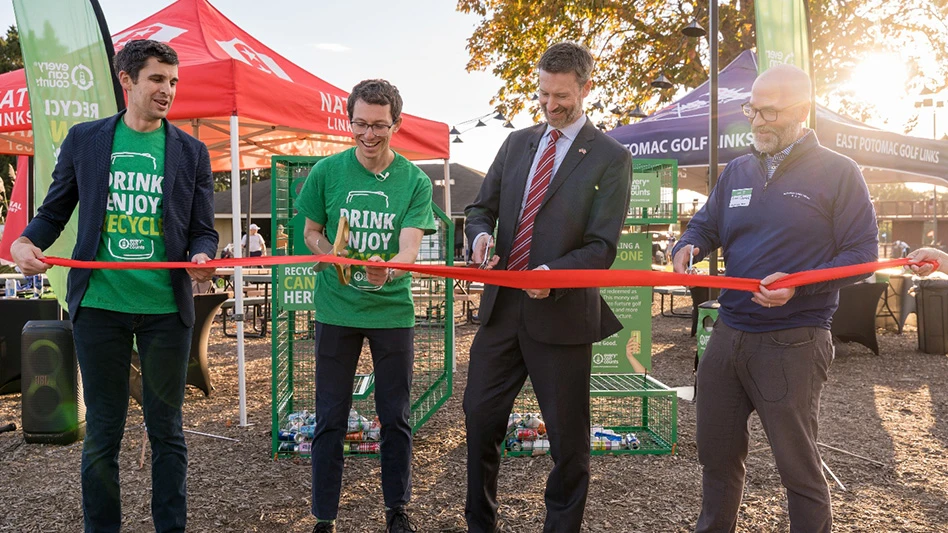
Photo courtesy of Everflow Ltd.
The recent decision by the United Kingdom’s Department for Environment, Food & Rural Affairs (DEFRA) to delay the introduction of extended producer responsibility (EPR) schemes in the U.K. might have left many within the waste management sector disheartened, perceiving a lack of resolve from the government to address crucial waste management challenges.
This sentiment of disappointment might be further amplified by the concurrent delay in the rollout of the food waste reporting mandate.
However, these delays at least provide a window for the government to align the U.K.’s approach to EPR with the dynamic business landscape. The hope is that this will augment the advantages of EPR while mitigating the potential adverse ramifications of a scheme implemented before it is ready.
Evaluating the impact on investments
The intricacies of EPR’s impact on the U.K. are multifaceted. While its implementation entails augmented costs and responsibilities for producers and manufacturers, it will usher in new market opportunities for business.
Businesses that embrace sustainable practices by using recyclable materials and designing products with end-of-life considerations in mind stand to gain a competitive advantage. Such initiatives appeal to environmentally conscious consumers and contribute to brand differentiation.
The net influence on investments in the U.K. hinges on the design of the EPR schemes, the level of government support offered and the adaptability of businesses within the evolving landscape.
As with any significant policy change, there may be a period of adjustment; but EPR holds the potential to be a pivotal contributor to a more sustainable and resilient economy.
Strategies for rollout
The postponement of EPR schemes presents an opportunity to ensure an effective rollout. By delaying, the government can engage with a wide range of stakeholders, including businesses, industry associations, environmental advocacy groups, waste management entities and consumers.
This concerted collaboration will enable a holistic grasp of diverse viewpoints, the identification of potential challenges and opportunities, and the formulation of a crystallized investment strategy focused on sustainable practices.
Using this extra time to assess and analyze the potential ramifications of EPR across businesses, industries, consumers and the environment will provide reliable data and evidence to support the rollout of EPR schemes.
These assessments should include not only economic implications but also social and environmental facets. A robust evaluation of the costs and benefits for stakeholders across the spectrum serves as the bedrock for a well-informed and effective rollout of EPR schemes.
Preceding the nationwide development of EPR, the concept of piloting the trial scheme within specific business sectors or regions emerges as a prudent step. This phased approach empowers the government to discern real world outcomes, proactively identify potential issues, and fine-tune the EPR approach based on observed pain points. In essence, this strategy facilitates a responsive and adaptive framework that optimizes the effectiveness of EPR.
Enlisting industry collaboration
Fostering engagement with industry leaders and businesses represents a critical enabler for sculpting an EPR scheme that is practical, feasible and aligned with the U.K.’s business landscape.
While the decision to postpone EPR schemes in the U.K. may have elicited concerns about the government’s commitment to environmental issues, a closer examination reveals a strategic opportunity for refined development.
Through meaningful stakeholder engagement, comprehensive assessments and pilot schemes, the government can develop a well-designed EPR scheme that contributes to a more sustainable and resilient economy.
The author is waste services director at Peterlee, United Kingdom-based Everflow Ltd.
Get curated news on YOUR industry.
Enter your email to receive our newsletters.
Latest from Recycling Today
- Investors plan to reopen lllinois iron foundry
- Algoma loses money, names new CEO
- ReMA opens nominations for 2026 Young Executive of the Year Award
- PPRC 2025: Tracking EPR’s progress
- North Carolina announces $25M in grant funding to strengthen recycling, waste management infrastructure
- L’Oréal joins Nextloopp Americas
- Ambercycle partners with REI
- WM reports mixed results for Q3






